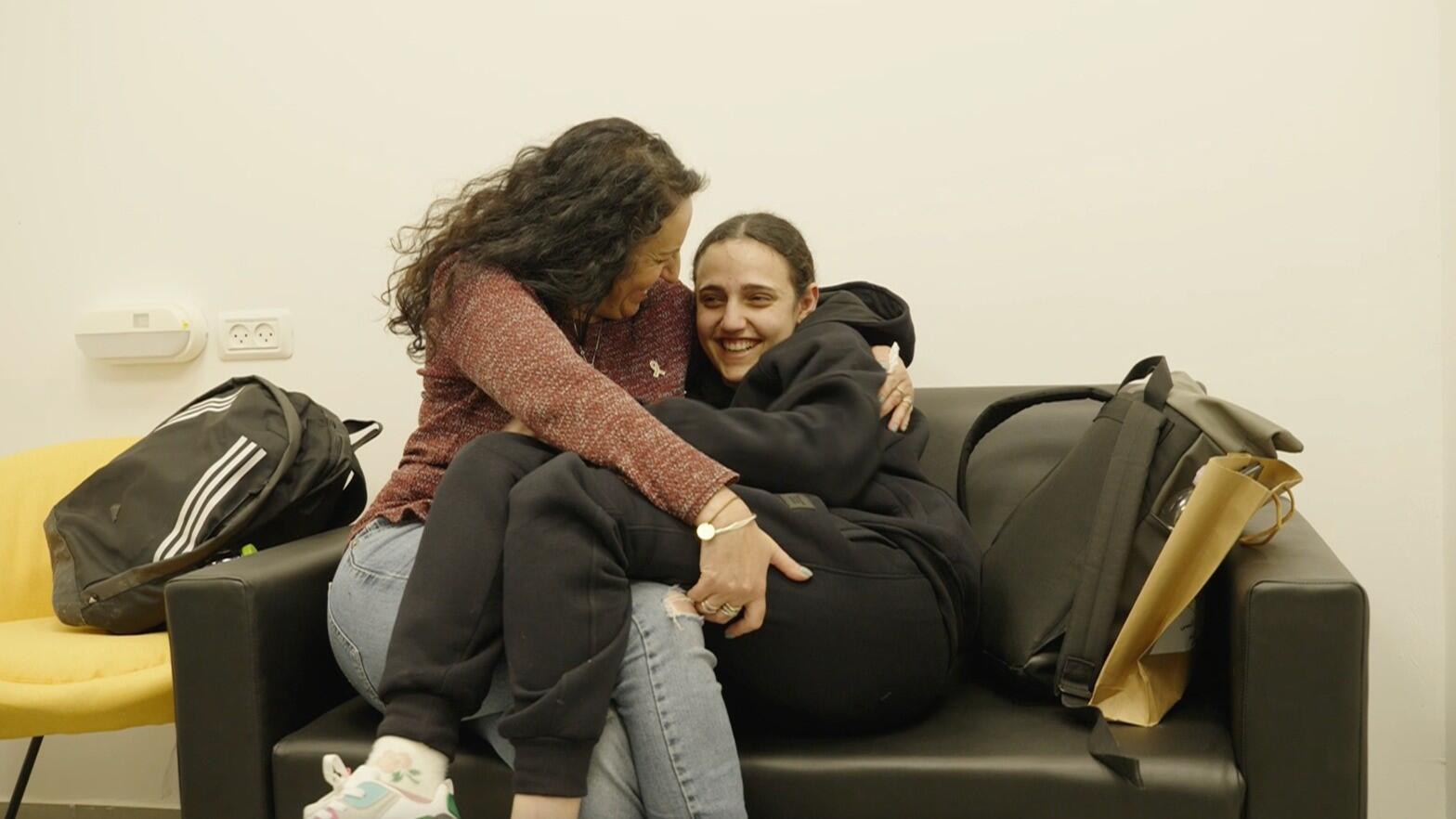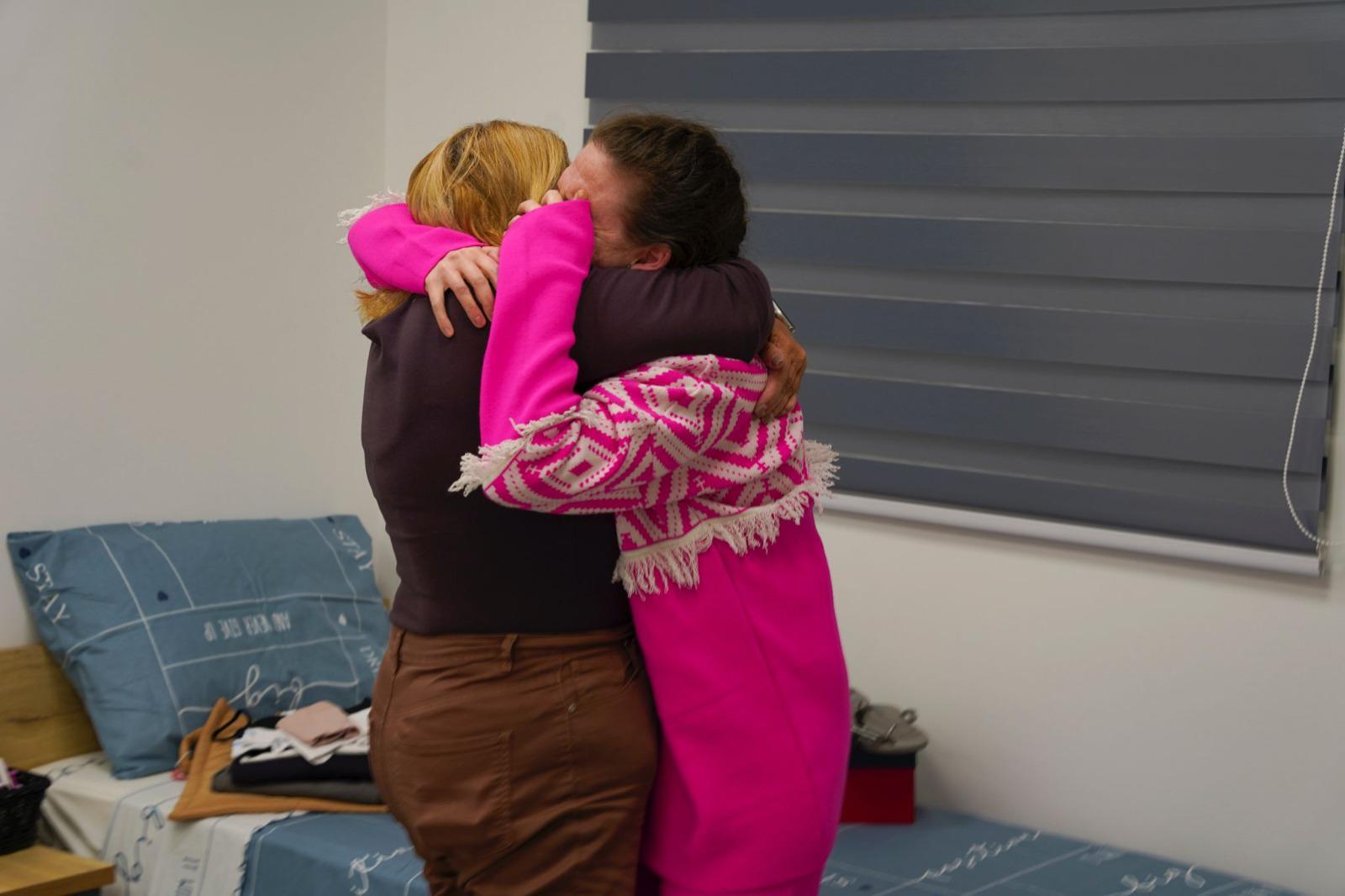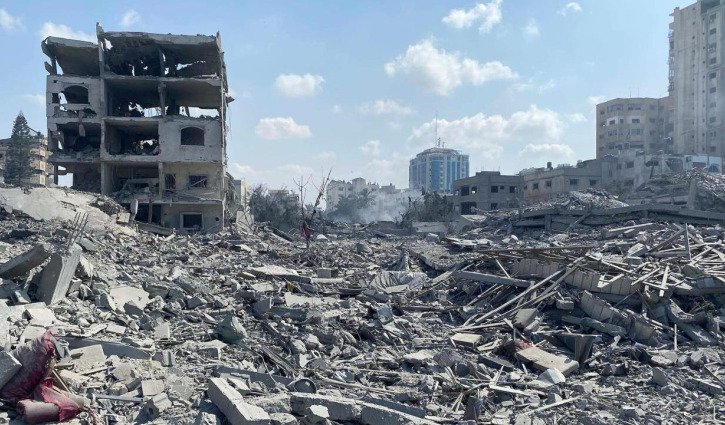Hamas released three Israeli hostages: Romi Gonen, Doron Steinbrecher, and Emily Damari, on Sunday (Monday AEDT) as part of the latest Middle East ceasefire deal.
Following their release from Hamas in Gaza, the three were emotionally reunited with their families in Israel.
They were handed over to the Red Cross and transferred to the Israeli military. This was part of a ceasefire deal that ended 15 months of conflict in Gaza.
“A short while ago, accompanied by IDF and ISA forces, the released hostages crossed the border into Israeli territory,” the IDF said.
“The released hostages are currently on their way to an initial reception point in southern Israel, where they will undergo an initial medical assessment.”
The hostages were taken during the 7 October, 2023, Hamas attack on Israel.

Romi Gonen, a 24-year-old dancer, was abducted from the Nova music festival.
Doron Steinbrecher, a 31-year-old veterinary nurse, was taken from her home in Kibbutz Kfar Aza.

Emily Damari, a 28-year-old British-Israeli, was also abducted from Kibbutz Kfar Aza. All three women were held in captivity for 471 days before their release.
The international community welcomed the hostages' release, expressing relief and gratitude for their safe return. Leaders from various countries praised the ceasefire deal, highlighting it as a crucial step toward peace and stability in the region.
The ceasefire deal includes the release of 90 Palestinian prisoners, including women and children.
The ceasefire is expected to last for six weeks, during which time additional hostages and prisoners will be exchanged.
Humanitarian aid is also allowed into Gaza as part of the agreement.
The release of the hostages and the ceasefire have brought relief and hope to both Israelis and Palestinians.
However, the situation remains fragile, and the ceasefire's success will depend on both parties' continued cooperation.
Israel's Prime Minister Benjamin Netanyahu said on X: "This moment was achieved thanks to the sacrifice and fighting of our heroic fighters - the heroes of Israel."
"I promise: We will bring everyone home!"
Maintaining the ceasefire may prove challenging due to deep-seated mistrust between the two sides, which could lead to misunderstandings or violations. Extremist factions on both sides might attempt to undermine the peace process by instigating violence or launching attacks. Moreover, political pressures and differing agendas within the Israeli and Palestinian leadership could complicate efforts to uphold the agreement.
The international community, including the United States, has played a significant role in mediating the deal. It will continue to support the peace process. The international community has been instrumental in facilitating dialogue between conflicting parties and ensuring humanitarian needs are addressed. Organisations such as the United Nations and countries like Egypt and Qatar have actively participated in negotiations to achieve the ceasefire. Their ongoing support and diplomatic pressure are crucial to maintaining stability and encouraging both sides to adhere to the agreement terms.
During the first phase of the ceasefire deal, another 30 Israeli hostages are set to be released following the release of three women on Sunday (Monday AEDT).
Related content

